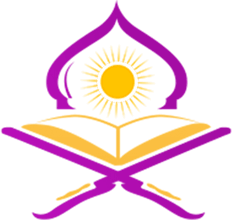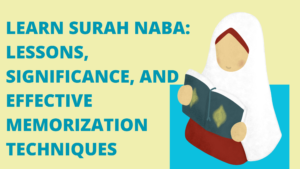During Zawal time, reciting the Qur’an is allowed, but performing Salat is prohibited at sunrise and sunset. Non-obligatory Salat is forbidden during Istiwaa’ Time but permitted during Zawal Time. Making du’a and reciting Adhkar at sunrise and sunset is encouraged for remembrance of Allah.
The term “Zawal Time” might not be familiar to everyone, leading to confusion about its meaning, timing, and permissible actions during this period.
As a Muslim, you’re aware of the importance of following specific rulings, especially regarding worship acts like salat, which are tied to specific times.
When you hear “Zawal Time,” it’s natural for questions to arise. Let’s explore and address these questions together to gain a clearer understanding.
Table of Contents
What Is Meant by Zawal Time?
Zawal Time signifies a crucial moment in the sun’s daily journey, occurring when it passes its meridian and begins to descend from its highest point in the sky. This transition marks the onset of dhuhr, one of the five daily prayers in Islam.
As the sun reaches its zenith, it signals a shift in time, marking the midpoint of the day and the beginning of a gradual descent towards the horizon.
Understanding Zawal Time is essential for determining the appropriate timing for dhuhr prayer, ensuring adherence to the prescribed rituals and spiritual practices of Islam.
Can I Recite Qur’an During Zawal Time? At Sunrise, and Sunset?
Certainly, you can recite the Qur’an during Zawal Time, which includes sunrise and sunset. There is no evidence indicating that reciting the Qur’an during these times is makrooh (detested) or haram (prohibited).
In fact, it is narrated that the Prophet Muhammad (ﷺ) used to recite and teach the Qur’an at all times, except when he was in a state of janabah (major ritual impurity). The restrictions regarding nafl (optional) prayers during sunrise and sunset do not apply to reciting the Qur’an.
Therefore, feel free to engage in the recitation of the Qur’an during Zawal Time without any hesitation or concern.
When Exactly Performing Salat Is Forbidden? Why?
Performing Salat is forbidden during the exact timing of sunrise and sunset because, according to the Prophet Muhammad (ﷺ), at these times, the sun is between the horns of Satan, and disbelievers used to prostrate to it.
So, Muslims must keep away from performing any Nafl-Salat at those times, avoiding any similarity with any act of shirk (like that of prostrating to the sun!).
Allah’s Messenger (ﷺ) said: “The sun rises accompanied by the horn of the devil, but when it is fully risen it leaves it; then when it is at the meridian it joins it, but when it passes the meridian it leaves it; then when it comes near to setting it joins it, but when it sets it leaves it.” (Allah’s Messenger prohibited praying at those hours.) [Malik, Ahmad and Nasa’i transmitted it.]
Also, the Prophet (ﷺ) told us when to perform salat, and when to refrain: “…and the time of Subh Salat (the morning-prayer) is from the appearance of dawn, as long as the sun has not risen, but when the sun rises, refrain from prayer, for it rises between the horns of the devil.” [Muslim transmitted it.]
Moreover, it was narrated that Allah’s Messenger (ﷺ) used to perform four rakahs, ‘after’ the Zawal of the sun, before performing the dhuhr-salat. He (ﷺ) said: ‘It is an hour in which the gates of the heavens are opened, and I love that a righteous deed should be raised up for me in it.‘” [Sahih].
So, as a Muslim, don’t perform salat, during the certain times of the sun rising, nor sun setting. Again, he (ﷺ) said:
“When the rim of the sun rises, leave off salat, till it comes right up, and when the rim of the sun goes below the horizon, leave off salat, till it has set, and do not make the rising or setting of the sun your time of salat, for it rises between the horns of the devil.” (Bukhari and Muslim).
What Is the Difference Between Zawal Time And Istiwaa Time?
Lots of people mix them up, let’s make that clear. As we said, Zawal time is when the sun ‘passes’ its meridian, whereas Istiwaa’ time is when the sun is exactly at the meridian, at its peak, at midday.
Thus, Istiwaa time, comes before Zawal time; also, Istiwaa time is momentary, somehow, lasting few minutes, 10-20, or so, ‘before’ the adhan of dhuhr-salat; at Istiwaa’ time, any non-Fardh (Nafl) Salat must not be performed; it is prohibited.
Whereas, in fact, Zawal time is already the start of dhuhr, when the sun actually moves away from the meridian, and therefore, it is okay to perform Nafl-Salat, like the four rakahs we pray as Sunnah, before the dhuhr-salat.
Can I Make Du’a at Sunrise And Sunset, and Recite Adhkar?
Definitely, you can Make Du’a at Sunrise And Sunset, and Recite Adhkar! Actually, as Muslims, we have the morning-and-evening-adhkar, as collected in the book, “Hissn Al-Muslim“.
In Qur’an, itself, Allah, says to our Prophet, (ﷺ), our example to follow: [So be patient ˹O Prophet˺ with what they say. And glorify the praises of your Lord before sunrise and before sunset. And glorify Him during part of the night and after the prostrations (i.e. salat).] (Qaf: 39-40).
[So be patient ˹O Prophet˺ with what they say. And glorify the praises of your Lord before sunrise and before sunset, and glorify Him in the hours of the night and at both ends of the day, so that you may be pleased.] (Taha: 130).
Moreover, making du’a and reciting Adhkar are not mainly ‘time-restricted acts of worship’. Allah, The Near, is always here, hearing our invocations, responding to our du’a, protecting, and rewarding us for keeping remembering Him, by adhkar.
Learn the Quran Online With Bayan al-Quran Native Arab Tutors:
Embark on a transformative journey of Quranic learning with Bayan Al-Quran’s comprehensive online courses. Our platform offers an authentic and immersive experience tailored to learners worldwide. Whether you’re a beginner or seeking to enhance your skills, our Tajweed courses provide expert guidance and structured learning to master the art of Quranic recitation.
🎓 Expert Guidance:
Benefit from experienced instructors who specialize in Tajweed, breaking down complex rules into manageable segments for learners of all levels.
✨ Key Features:
- Structured, step-by-step learning approach.
- Access to high-quality instructional materials.
- Real-time feedback from qualified tutors to enhance your practice.
- Flexible learning schedules to accommodate your pace and convenience.
- Immerse yourself in the melodious tones of Quranic recitation, enriching your spiritual experience.
🌟 Why Choose Bayan Al-Quran?
Join our vibrant community dedicated to perfecting Quranic recitation. Build a profound connection with the divine words of the Quran and enrich your spiritual journey. Choose Bayan Al-Quran for a transformative learning experience and embark on a path to mastering Tajweed with confidence.
You can also attend online Quran Classes with Bayan al-Quran with Native Arab tutors. There are also several courses that can help you in this regard:
- Online Quran Classes For Kids
- Learn Arabic Online For Kids
- Islamic Studies Online Course
- Noorani Qaida Online Course For Kids And Adults
- Arabic Tutors Online
Conclusion:
During the Zawal time, reciting the Qur’an, including at sunrise and sunset, is permissible. However, performing Salat is prohibited at sunrise and sunset due to the belief that the sun is between the horns of Satan.
Non-obligatory Salat is prohibited during Istiwaa’ Time but permissible during Zawal Time. Making du’a and reciting Adhkar at sunrise and sunset is encouraged as a time for glorifying and remembering Allah.



















